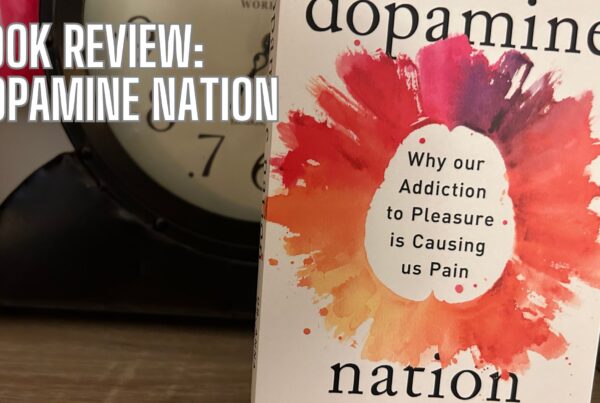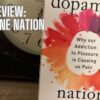Mindful Self-Regulation: Navigating the Season of Excess
As the calendar pages turn, we find ourselves amidst the high tide of social events marked by the Melbourne Cup, sports betting, and a surge in partying. It’s a period that often sees an uptick in excessive gambling and substance use, challenging our self-control and well-being. In this article, we’ll explore practical strategies rooted in hypnotherapy and Acceptance and Commitment Therapy (ACT) to foster mindful self-regulation, empowering you to make conscious choices that align with your values and long-term happiness.
Understanding the Pull of Excessive Behaviors
The Allure of Instant Gratification
The human brain is wired to seek immediate rewards, a principle that’s amplified during festive seasons. The Melbourne Cup, for instance, isn’t just a horse race; it’s a cultural phenomenon that encourages betting as a form of participation. Similarly, sports betting ads cleverly tap into the excitement of the game, offering the promise of quick gains. The immediate rush of dopamine from these activities can overshadow the delayed gratification of long-term goals, leading to excessive gambling.
Social Influence and Group Dynamics
Social gatherings often involve drinking and sometimes, drug use. The desire to fit in or to enhance the perceived quality of an experience can lead to overindulgence. It’s crucial to understand that these behaviors are often normalized in group settings, making it harder to resist participation. However, recognizing the power of social influence is the first step towards mindful self-regulation.
Strategies for Mindful Self-Regulation
Setting Intentions and Boundaries
Before attending any event where you might be tempted to overindulge, set clear intentions. Ask yourself what you want to get out of the experience, and how you want to feel the next day. Establish boundaries for yourself regarding gambling and substance use. For example, decide on a limit for how much you’re willing to bet or set a cap on your alcohol intake. These pre-set boundaries can serve as a guide to help you know when to say no.
The Power of Mindful Presence
Mindfulness is a cornerstone of self-regulation. By staying present and fully experiencing each moment, you’re less likely to act on autopilot and give in to impulsive behaviors. Practice checking in with yourself throughout the event. How are you feeling? What are you thinking? Are these thoughts and feelings in line with your intentions? This ongoing self-dialogue can be a powerful tool in maintaining control.
Hypnotherapy: Rewiring the Brain for Better Choices
Understanding Hypnotherapy for Habit Change
Hypnotherapy can be a potent ally in the quest for mindful self-regulation. By accessing the subconscious mind, hypnotherapy can help rewire ingrained patterns of behavior. For someone struggling with excessive gambling, hypnotherapy can instill deeper awareness of the triggers and unconscious beliefs that lead to gambling, paving the way for more constructive habits.
The Role of Suggestion and Visualization
During hypnotherapy, suggestions are used to promote positive change and visualization techniques to imagine oneself making healthier choices. For instance, visualizing the act of walking away from a betting situation or declining another drink can reinforce the ability to do so in real life. These mental rehearsals can significantly boost one’s confidence in handling challenging situations.
Acceptance and Commitment Therapy (ACT): Embracing Values Over Habits
The ACT Perspective on Habitual Behavior
ACT emphasizes the importance of accepting what is out of your personal control while committing to actions that enrich your life based on your values. It teaches that you can acknowledge the presence of urges to gamble or use substances without having to act on them. This shift from a struggle to control unwanted thoughts to a commitment to act in accordance with your values is central to ACT.
Practical ACT Exercises
One practical ACT exercise is the ‘Values Card Sort’. By identifying and prioritizing your values, you can make decisions that align with who you truly want to be. Another exercise is the ‘Willingness Scale’, where you rate your willingness to experience uncomfortable emotions without resorting to negative habitual behaviors. This can increase your psychological flexibility and resilience.
Building a Supportive Environment
The Importance of Community
Creating a supportive environment is key to maintaining mindful self-regulation. Surround yourself with people who respect your boundaries and who you can turn to for encouragement. Joining support groups or finding a community of like-minded individuals can provide a sense of belonging and accountability.
Leveraging Technology for Support
There are numerous apps and online communities focused on promoting healthy habits. These can provide daily reminders of your intentions, track your progress, and offer a platform to share experiences and gain support from others who are on a similar journey.
The Path to Mindful Self-Regulation
Mindful self-regulation is not about perfection; it’s about making more conscious choices that lead to a healthier, more fulfilling life. By understanding the triggers of excessive behaviors, setting clear intentions, and using tools from hypnotherapy and ACT, you can navigate the season of excess with grace and self-compassion. Remember, every moment is a new opportunity to choose actions that align with your values and contribute to your long-term well-being.
Release Hypnosis Melbourne Hypnotherapy
Since 2016, Lawrence Akers has been working under the name Release Hypnosis offering Hypnotherapy and ACT based work to the people of Melbourne or an online service. Based on St Kilda Rd, Release Hypnosis is an easy and convenient location to get to and accessible by the ANZAC station train and tram stop. Release Hypnosis can help with a wide range of presenting issues, and I offer a free 30 minute no obligation discovery call for those who are unsure if hypnotherapy is the right way forward for them.
Book Your FREE 30 Minute Consultation With Release Hypnosis NOW!
You may also like to read:
Discovering Purpose and Values: A Path to Mental Well-being
Can’t Visualise in Hypnosis? Here’s What You Can Do Instead.
Dealing with Financial Stress and Crisis: Finding Peace Amid Turbulence
What Is The Success Rate of Hypnosis?
Release Hypnosis Melbourne Hypnotherapy is accessible for people in: Abbotsford, Armadale, Albert Park, Balwyn, Bentleigh, Black Rock, Box Hill, Brighton, Brunswick, Bulleen, Bundoora, Camberwell, Canterbury, Carnegie, Caulfield, Chadstone, Cheltenham, Clayton, Coburg, Collingwood, Deer Park, Doncaster, Elsternwick, Eltham, Elwood, Epping, Essendon, Fairfield, Fitzroy, Footscray, Glen Iris, Glen Waverley, Glenhuntly, Greensborough, Hampton, Hawthorn, Heidelberg, Highet, Ivanhoe, Kew, Kooyong, Lalor, Laverton, Lower, Plenty, Macleod, Malvern, Middle Park, Moonee Ponds, Melbourne, Moorabbin, Mount Waverley, Murrumbeena, Northcote, Oakleigh, Ormond, Parkville, Pascoe Vale, Port Melbourne, Prahran, Preston, Richmond, Rosana, Sandringham, South Yarra, South Melbourne, Spotswood, St Albans, St Kilda, Surrey Hills, Templestowe, Thornbury, Toorak, Tullamarine, Williamstown, Yarraville, North Melbourne, Windsor, East Melbourne, Melbourne, Melbourne CBD, Melbourne 3004








